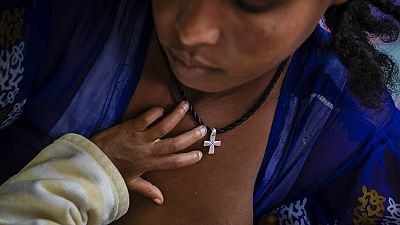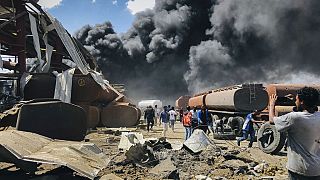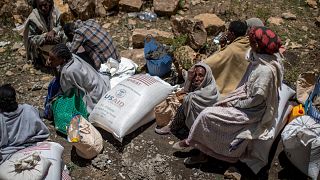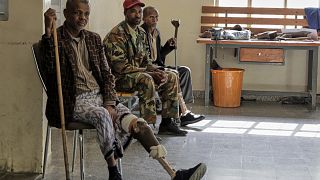Ethiopia
Deadly diseases such as measles, tetanus, and whooping cough are on the rise in Ethiopia's Tigray region.
This is a result of vaccination rates plunged during the civil war that broke out nearly two years ago, doctors and regional health officials say in a report by Reuters.
The percentage of children in Tigray receiving routine vaccines has fallen below 10% this year, data from the Tigray Health Bureau show.
"The hopes of the children in the region to grow healthier and happier were snatched away in a blink of an eye," the bureau said in a letter this month to the global vaccine alliance Gavi.
The letter, seen by Reuters, blamed the decline in vaccination on supply shortages caused by what it called a "siege" of Tigray by Ethiopian federal forces, power outages that have disrupted vaccine cold chains, and the inability of people in rural areas to reach health facilities.
A ceasefire between March and late August between Tigrayan and federal forces allowed some medical aid, but humanitarian access has been suspended since fighting resumed, a U.N. commission of human rights experts said on Monday.
The experts said in a report that they had reasonable grounds to believe that the denial of access to healthcare and other aid by federal authorities amounts to a crime against humanity.
Ethiopia's ambassador to the United Nations in Geneva on Tuesday rejected a report by UN investigators accusing Addis Ababa of possible crimes against humanity in Tigray and of using famine as a weapon of war.
"There is not a single piece of evidence that shows that the Ethiopian government has used humanitarian aid as an instrument of war," Ambassador Zenebe Kebede, Ethiopia's permanent representative to the UN in Geneva, told AFP.
A commission of three experts, which has written a report for the UN Human Rights Council, found that war crimes and crimes against humanity were likely committed during the conflict that has torn Ethiopia apart since late 2020 in the northern region of Tigray.
-Measles outbreak-
Health Minister Lia Tadesse said vaccines had been provided to Tigray this year and that more were ready to be delivered once conditions allowed.
In its letter, the Tigray Health Bureau said the percentage of children receiving the full three doses of the Pentavalent vaccine against diphtheria, whooping cough, tetanus, hepatitis B, and Haemophilus influenzae type b (Hib) dropped from 99.3% in 2020 to 36% in 2021 and 7% this year.
The rate across Ethiopia was 65% in 2021, according to data from the U.N. children's agency UNICEF.
The letter said the percentages of children being vaccinated against tuberculosis and measles have also plummeted from over 90% in 2020 to less than 10% this year.
It said there have been measles outbreaks in 10 of the region's 35 districts since the war began and 25 cases of neonatal tetanus this year, compared to just two in each of the previous three years.
"Vaccines are given for free across Ethiopia but they are not coming to Tigrayan children," said Fasika Amdeslasie, a surgeon at Ayder Referral Hospital, which he said has treated children for measles and whooping cough.
Ethiopia's health minister Lia said 860,000 doses of measles vaccines were delivered to Tigray last December and additional doses were delivered on April 2.
Another planned delivery is on hold at the instruction of the U.N. World Food Program, which coordinates humanitarian deliveries into Tigray, Lia said in a statement.












Go to video
In Namibia, horse-riding becomes therapy for children with special needs
Go to video
Al-Qaida-linked militants attack a strategic town in Somalia
Go to video
Lt. Gen. Tadesse Werede named the new interim president of the Tigray region
Go to video
Africa off track on maternal mortality targets, UN warns on world health day 2025
Go to video
UN intensifies patrols at displacement camps amid rising violence in South Sudan
Go to video
Court allows case of promoting Ethiopia violence against Facebook to proceed